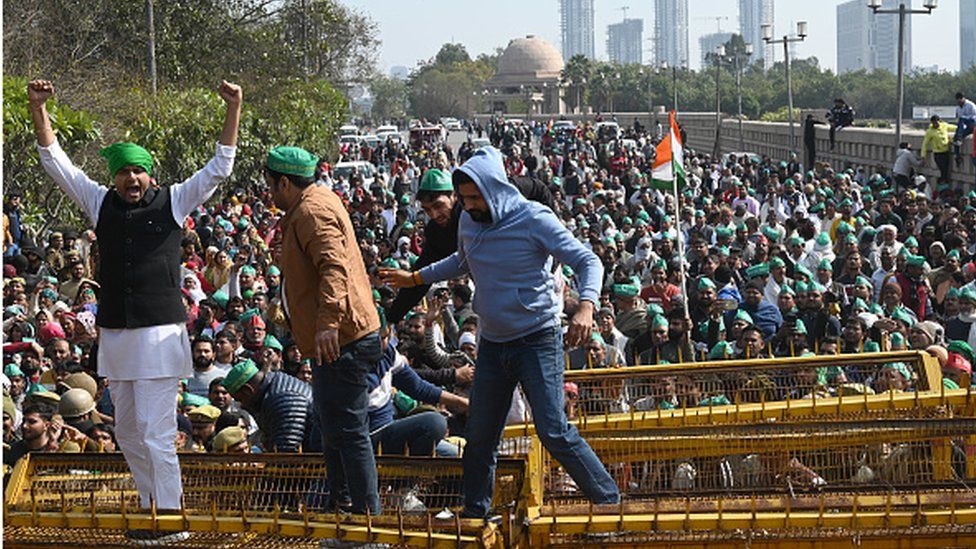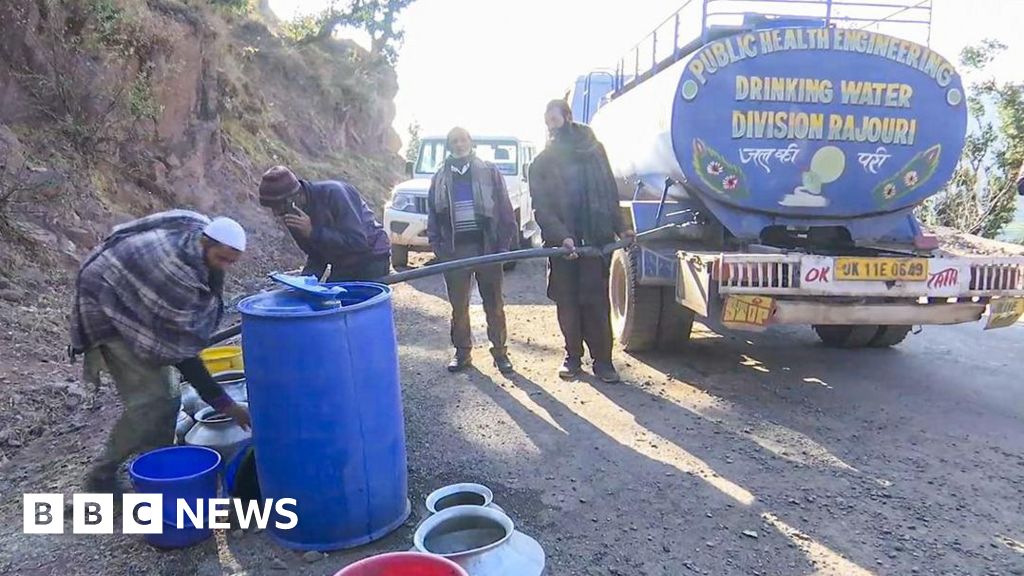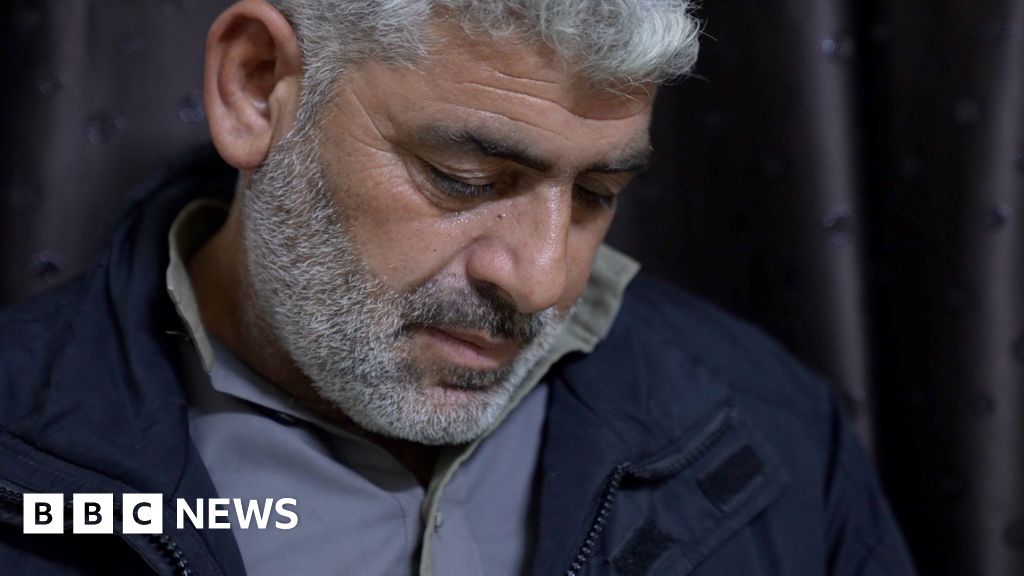ARTICLE AD BOX
 Image source, Getty Images
Image source, Getty Images
The protest march began on Tuesday after talks between farm union leaders and federal ministers failed to break the deadlock
By Arvind Chhabra in Haryana & Meryl Sebastian in Kochi
BBC News
Indian farmers are set to continue their march to Delhi as part of a protest demanding minimum crop prices.
The farmers, most of whom are from Punjab state, are still more than 200km (125 miles) from the capital at the Shambhu border in Haryana state.
The capital is ringed by razor wire, cement blocks and fencing on three sides to block their entry.
On Tuesday, Haryana police fired tear gas after protesting farmers began removing barricades on the way.
Later at night, farm leaders called a "ceasefire" and said they would resume their march on Wednesday morning.
The protest march began on Tuesday after two rounds of talks between farm union leaders and federal ministers failed to break the deadlock. More than 200 unions are participating in the march.
Farmers are asking for guaranteed floor prices - also known as minimum support price or MSP - which allows them to sell most of their produce at government-controlled wholesale markets, or mandis. They are also demanding that the government fulfil its promise of doubling farmers' income.
The farmers aim to reach the capital after crossing the state of Haryana.
Video footage on Wednesday morning showed thousands of riot police and paramilitary troops deployed along Delhi borders to keep the protesters away.
On Tuesday, visuals from the Ambala city, north of the capital, showed thick clouds of tear gas.
At the Shambhu border, clashes broke out between police and protesters as they tried to press past the barricades. Police dropped tear gas on the crowd using drones.
Several protesters were injured in the police action. Security personnel also suffered injuries from stones pelted at them by the protesters.
Traffic jams and disruptions were reported across Delhi as authorities diverted routes and blocked roads.
Image source, Getty Images
Image caption,Security forces have blocked Delhi's borders with razor wire, cement blocks and fencing on three sides
Farm leader Sarwan Singh Pandher told ANI news agency that there were approximately 10,000 people at the Shambhu border. Calling the attack on the farmers "shameful", he said, "we are farmers and labourers of the country and we do not want any fight".
Farmers form an influential voting bloc in India and analysts say the government of Prime Minister Narendra Modi will be keen not to alienate them. His Bharatiya Janata Party (BJP) is seeking a third consecutive term in power in general elections this year.
"Our objective is that the government listens to our demands," Mr Pandher had said ahead of the march.
In 2020, protesting farmers had hunkered down for months, blocking national highways that connect the capital to its neighbouring states. Their year-long protest, seen as one of the biggest challenges to Mr Modi's government, forced the authorities to rollback controversial agriculture reforms.
The protesters have received some support from the Punjab and Haryana High Court which has said that as citizens of the country, the farmers had the "right to move freely".
India's opposition leaders have also extended support to them and condemned the government's attempt to stop them from reaching Delhi.
Congress party leaders Rahul Gandhi and Mallikarjun Kharge said on Tuesday that they would enact a law to guarantee minimum price for the farmers if the party was voted to power in the elections.

 11 months ago
31
11 months ago
31








 English (US) ·
English (US) ·